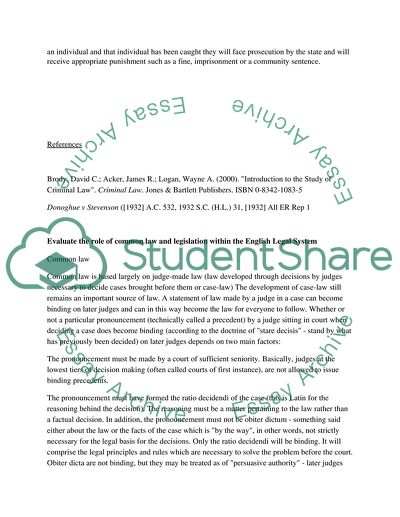Cite this document
(The Role of Criminal Law and Civil Law in Relation to the English Lega Assignment - 1, n.d.)
The Role of Criminal Law and Civil Law in Relation to the English Lega Assignment - 1. Retrieved from https://studentshare.org/law/1751414-international-business-law
The Role of Criminal Law and Civil Law in Relation to the English Lega Assignment - 1. Retrieved from https://studentshare.org/law/1751414-international-business-law
(The Role of Criminal Law and Civil Law in Relation to the English Lega Assignment - 1)
The Role of Criminal Law and Civil Law in Relation to the English Lega Assignment - 1. https://studentshare.org/law/1751414-international-business-law.
The Role of Criminal Law and Civil Law in Relation to the English Lega Assignment - 1. https://studentshare.org/law/1751414-international-business-law.
“The Role of Criminal Law and Civil Law in Relation to the English Lega Assignment - 1”, n.d. https://studentshare.org/law/1751414-international-business-law.


